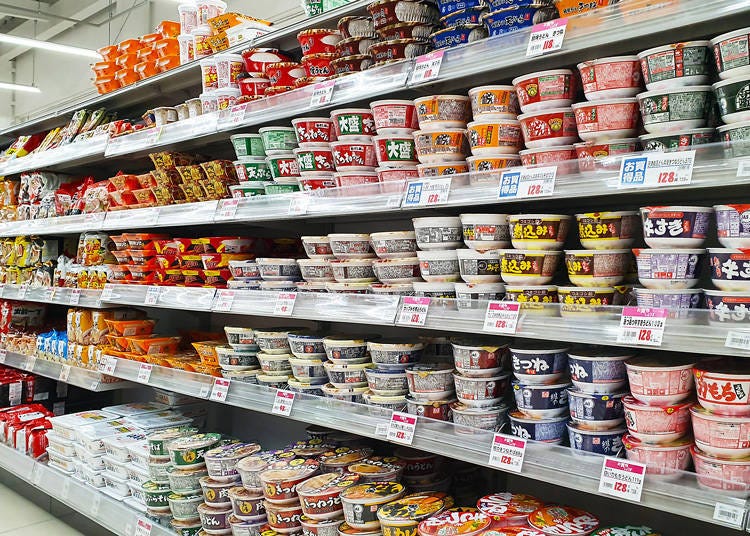
Is Working in a Japanese Convenience Store the Dream Job? Foreign Nationals Share Their Experience
- Written by: Ran Tanaka
There are over 50,000 convenience stores all over Japan, and lately they are beginning to hire more and more foreign staff. To me, that seems like the ultimate challenge – moving to an entirely new country and living and working in a foreign language. I was intrigued as to what kind of challenges they might face!
So, I interviewed three people from China, Hong Kong, and Vietnam who worked part-time at a convenience store in Japan, and asked them what kinds of positive and negative shocks they had come across at work.
(The following reflects only the opinions of those interviewed)
"Convenience stores are a treasure trove of new technology!" (Male, Hong Kong)

Mr. J from Hong Kong is studying at a Japanese language school. He chose to work part-time at a convenience store to practice Japanese if to have more opportunities to chat with Japanese people in the hospitality business. So what kind of experience did he have working at the convenience store?
“First of all, it was good that I had more opportunities to speak Japanese. Because of that, I met various people, including customers and staff. There were some difficult customers, but most were very friendly.”
When I asked for more details about what he thought of the customers, I got the following answer:
“I was surprised by the politeness of the Japanese people! Many of our customers say “please” and “thank you.” It’s the little things that count.”
It’s just a small courtesy, but it’s nice to hear that the staff appreciate it! So, other than the customers, did he experience any other culture shocks?
“I was surprised by how high-tech the machines are. When you put money into the cash register, it automatically calculates the change! We don’t have that back home, so I was pretty excited to get to use it.”
Cash registers with automatic change calculations have become popular all over the country in the past few years. This is something that impresses even Japanese people. Thankfully, Mr. J seems to have positive memories and impressions at part-time jobs at convenience stores.
"There were some customers who were not very kind..." (Female, China)

On the other hand, there are some people who worked at a convenience store in Japan and didn't have many good memories. Ms. C, a Chinese woman, worked part-time at a convenience store when she was studying at university.
There were some reasons why she didn’t have great memories.
"There were some customers I didn’t get on with. One said to me ‘The usual’ and I had no idea what they wanted. Some even saw my name tag written in katakana* and told me to ‘go back to China’. I was very sad because I was discriminated against when I was just doing my job as normal.”
*Katakana is an alphabet used mostly for non-Japanese words and names
Ms. C continues.
“I wasn’t the best at customer service, so perhaps I seemed unfriendly. I worked at a convenience store because it was an easy job to do while studying. I could easily move my shifts to work early hours on weekdays and evenings on holidays, which I was grateful for.”
Certainly convenience stores are open 24 hours a day, so there is an advantage that you can adjust your shift as necessary!
"Another positive point was I had first pick of the new lines of cup noodles and Japanese sweets. Japanese food is so popular in China, so sometimes I sent it to family and friends"
Conbini food is definitely popular abroad! I suppose one of the great advantages to working at a convenience store is being up-to-date with the latest food and snack trends.
“I am deeply impressed by the compassion of Japanese staff” (Female, Vietnam)

Ms. N from Vietnam, our last interviewee, worked at the same convenience store for four years while attending university. So, I asked why did you work there for so long?
“Besides myself, there were many Chinese and Koreans, and it was a good environment for foreigners to work in. The store manager was a strict but kind person who taught me Japanese manners such as the posture when standing and bowing. She also showed concern about my health in general, and would check up on me by asking things like ‘Did you have dinner today?’”
It seems Ms. N was very impressed by the behavior of not only the store manager but also other staff.
“I didn’t work at the cash register, but on the shop floor shelving goods. It was a bit physically demanding, but the staff always supported me regardless of nationality. I learned a lot about Japanese compassion and cooperation.”
It’s so interesting that Ms. N experienced culture shock even in a non-customer-facing role!
“In Japan, the quality control of foods is very strict. It goes beyond Vietnam's conventional practices, to a point where we were checking the temperature of the refrigerator every hour, being extra-careful with the expiry date, and disposing of broken packaging. I think that Japan is the best in the world to deliver safety and security to employees and customers. Working at a convenience store has been a great source of discovery for me!”
It seems that there are various difficulties such as product management and communication between staff that are unique to Japan. But there seem to be enough advantages to outweigh the shortcomings! If you’re thinking of learning Japanese, perhaps a job at a convenience store is the way to go.
Ran Tanaka is a Japanese writer and travel agency employee. After working as an editor for a major website, she switched to a travel company. She specializes in travel and food-related genres, and she has covered all 47 prefectures in Japan. She regularly travels to report on hidden gems, scenic spots, and the kinds of travel tips that only a travel industry insider can know.
*Prices and options mentioned are subject to change.
*Unless stated otherwise, all prices include tax.
Popular Tours & Activitiess
Recommended places for you
-

Jukuseiniku-to Namamottsuarera Nikubaru Italian Nikutaria Sannomiya
Izakaya
Kobe, Sannomiya, Kitano
-

Kanzenkoshitsuyakinikutabehodai Gyugyu Paradise Sannomiya
Yakiniku
Kobe, Sannomiya, Kitano
-

ISHIDAYA Hanare
Yakiniku
Kobe, Sannomiya, Kitano
-
Goods

Yoshida Gennojo-Roho Kyoto Buddhist Altars
Gift Shops
Nijo Castle, Kyoto Imperial Palace
-

Kambei Sannomiyahonten
Yakiniku
Kobe, Sannomiya, Kitano
-
Appealing

Rukku and Uohei
Izakaya
Sapporo / Chitose
-

At This Zen Hideaway in Shinjuku, Master the Way of Tea with English Guidance, Matcha, and Wagashi This April
by: Guest Contributor
-
Ad

5 Recommended Wagyu Yakiniku Restaurants in Tokyo: Signature Dishes, Premium Beef, and Secret Sauces
-
Ad

What Makes Japanese Yakiniku So Darn Good? Guide to Cuts, Heat, and Wagyu Know-How
-

PokéPark KANTO Is Finally Open! Tokyo's New Pokémon World Starts Before You Even Arrive (2026)
by: Guest Contributor
-

Top 3 OSHI MAPs for the Best Matcha and Sweets in Tokyo
by: Guest Contributor
-

Where to Buy a Japanese Kitchen Knife? Why Travelers Choose MUSASHI JAPAN's 14 Stores in Tokyo, Kyoto, and Nara
by: Guest Contributor
-

'What's in Shibuya?' 5 Ways the Shibuya Area Is Way Different From What Tourists Expected
-

'Too Strict!' 7 Things That Shocked a French Tourist When Visiting Japan
-

Hakodate 2-Day Itinerary for Exploring Japan's Foodie North!
-

Best Outlet Malls Near Sendai: Shopping, Souvenirs, and Discounts
-

Japan's Drinking Culture is so Different! Why Are There So Many 'Standing Bars' in Japan?
-

'Big Face?!' Americans Share About Their Quirky Experiences in Japan
- #best sushi japan
- #what to do in odaiba
- #what to bring to japan
- #new years in tokyo
- #best ramen japan
- #what to buy in ameyoko
- #japanese nail trends
- #things to do japan
- #onsen tattoo friendly tokyo
- #daiso
- #best coffee japan
- #best japanese soft drinks
- #best yakiniku japan
- #japanese fashion culture
- #japanese convenience store snacks













